Shipping from China to Japan is an important part of the business and economy of Asia. Tokyo, a big city in Japan, is always busy with trade and people. Whether you’re a company or an individual, knowing how to ship to Tokyo is really helpful.
Dantful, a company that knows a lot about shipping from China to Tokyo, is here to guide you. We will make it easy for you to understand how shipping works. In the next sections, we will talk about the basics of shipping, give you useful tips, explain how much it costs, and tell you about the rules you need to follow. We want to make sure your stuff gets to Tokyo without any problems. So, let us start this journey together and make sure your things reach Tokyo smoothly.
Factors to consider when shipping from China to Tokyo
When you are shipping things from China to Tokyo, there are several important things to think about. These are called “factors,” and they can help make your shipping process smoother. These factors are like important puzzle pieces. They make sure your shipment gets to Tokyo safely and with no problems. The history of shipping from China to Tokyo and the import of Chinese goods into Japan is a story that spans centuries and is deeply intertwined with the economic, cultural, and geopolitical relationships between these two East Asian giants. Let us look at some of these factors with simple explanations and examples:
1. Shipping Method: One big factor is how you want to send your things. You can choose between sending them by sea, which is slower but usually cheaper, or by air, which is faster but can be more expensive. For example, if you are sending delicate electronics, air shipping might be better to ensure they arrive quickly and safely.
2. Packaging: How you pack your items matters a lot. Good packaging protects your goods during the journey. If you are shipping fragile items, like glassware, using bubble wrap or special boxes can prevent them from breaking.
3. Customs Duties: Tokyo, like most places, has rules about what can and cannot come in. You might have to pay taxes or duties on your items. Make sure to research these rules and budget for them. For instance, if you are sending many clothes, you may need to pay import taxes.
4. Documentation: You will need paperwork like invoices and shipping labels. These documents need to be accurate and complete. For example, if you’re shipping food products, you’ll need to provide detailed information about what is inside each package.
5. Transit Time: Consider how long it will take for your goods to reach Tokyo. Air shipping is faster, but it can cost more. If you are sending time-sensitive items, like fresh flowers, faster transit time might be crucial.
6. Shipping Costs: Calculate all the expenses involved, including shipping fees, insurance, and any additional charges. It’s essential to have a clear understanding of the total cost. For example, if you are a small business owner shipping products to Tokyo, understanding all the costs involved can help you set the right prices for your customers.
7. Packaging Regulations: Different items may have specific packaging requirements or restrictions. Tokyo might have rules about the materials you can use for packaging. Make sure your packaging complies with these regulations.
8. Weather and Season: Tokyo experiences different weather conditions throughout the year. Extreme temperatures or weather events can affect shipping. For instance, if you’re sending chocolates in the summer, consider temperature-controlled shipping to prevent melting.
9. Handling of Perishables: If you are shipping perishable items like fruits or seafood, you will need to ensure they are stored and handled correctly to maintain their quality during transit.
10. Shipping Partner: It is crucial to choose a reliable shipping company or partner. Research and select a company with experience shipping from China to Tokyo. They can help you navigate the complexities and ensure your items arrive safely.
By considering these factors and planning accordingly, you can make your shipping experience from China to Tokyo a successful one, whether you are a business owner or an individual sending personal items.
Choosing the best shipping method for Tokyo
When it comes to shipping from China to Tokyo, one of the first decisions you will need to make is choosing the best shipping method. China and Japan are connected by both sea and air routes, offering different options to suit your needs. Shipping by sea, often a more cost-effective choice, involves cargo ships that travel across the ocean, following established routes between Chinese ports and Japanese ports, such as Yokohama and Tokyo. This method is ideal for larger shipments or goods that are not time-sensitive. On the other hand, air shipping is the faster route, with planes transporting cargo directly from Chinese airports to Tokyo’s airports, such as Narita or Haneda. This is an excellent option for urgent shipments or products with shorter shelf lives, but it can be pricier. Your choice between these routes depends on your budget, the nature of your goods, and how quickly they need to reach Tokyo.
Air Freight from China to Tokyo
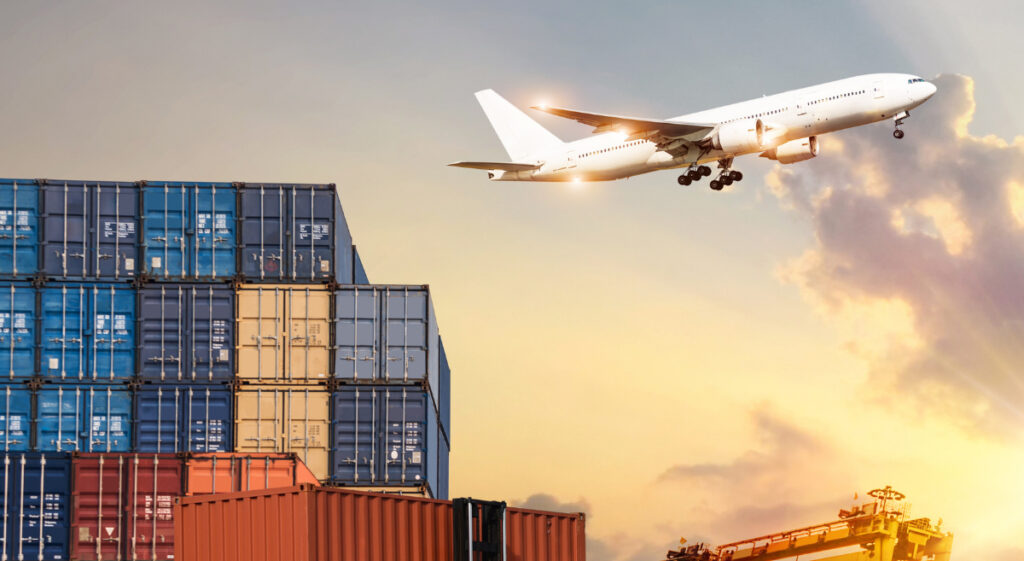
Air freight from China to Tokyo is a fast and efficient method of shipping goods that offers several notable benefits when chosen as the preferred shipping option. Air freight from China to Tokyo offers a range of benefits, including speed, reliability, global connectivity, enhanced security, and flexibility. Businesses that value efficiency and timely deliveries, as well as those dealing with time-sensitive or high-value goods, often find air freight to be the preferred choice for their shipping needs. Benefits:
- Speedy Delivery: One of the primary advantages of opting for air freight is the speed at which your goods can reach Tokyo. Airplanes are significantly faster than other modes of transportation, like sea freight. If you have time-sensitive shipments or perishable goods, air freight ensures they reach their destination in Tokyo promptly.
- Reliability: Air freight services are known for their reliability. Airlines typically adhere to strict schedules, minimizing delays and ensuring that your cargo arrives in Tokyo as planned. This reliability can be crucial for businesses that rely on just-in-time inventory management or meeting customer deadlines.
- Global Connectivity: Airports in China and Tokyo are well-connected to international destinations. This extensive network allows for seamless shipping to and from various locations worldwide. Whether you are dealing with international trade or require quick access to global markets, air freight offers unmatched connectivity.
- Enhanced Security: Airports have robust security measures in place, reducing the risk of theft or damage to your cargo.Additionally, goods in transit via air freight are usually handled with care to prevent damage during loading and unloading.
- Reduced Inventory Costs: The speed of air freight can help businesses reduce their inventory holding costs. With quicker transit times, you can maintain lower stock levels and still meet customer demands efficiently.
Sea Freight from China to Tokyo

Sea freight from China to Tokyo is a widely used and cost-effective method for shipping goods, sea freight from China to Tokyo provides a cost-effective, reliable, and environmentally sustainable means of shipping goods. Businesses with large shipments, flexible timelines, and a focus on cost-efficiency often find sea freight to be the preferred choice for their shipping needs. Offering several key benefits when chosen as the preferred shipping option:
- Cost-Efficiency: Sea freight is often more cost-effective compared to air freight, making it an attractive choice for businesses with large or non-urgent shipments. If your primary concern is reducing shipping expenses, sea freight can offer significant savings.
- Capacity for Bulk Shipping: Sea freight is well-suited for transporting large quantities of goods or oversized items. Businesses that deal with heavy machinery, vehicles, or bulk commodities can benefit from the ample cargo space available on cargo ships.
- Reliability: Although sea freight may not be as fast as air freight, it is known for its reliability and predictability. Shipping companies adhere to strict schedules, reducing the risk of delays and ensuring your cargo arrives in Tokyo on time.
- Sustainability: Sea freight generally has a lower carbon footprint compared to air freight, making it a more environmentally friendly option for those concerned about sustainability and reducing emissions.
- Flexibility in Shipping Options: Sea freight offers various options, including Full Container Load (FCL) and Less than Container Load (LCL) services. This flexibility allows you to choose the most suitable option based on the size and volume of your cargo.
DDP (Delivered Duty Paid) Shipping from China to Tokyo
DDP, or Delivered Duty Paid, is a comprehensive shipping arrangement that simplifies the process of transporting goods from China to Tokyo. Under this Incoterm (international trade term), the seller takes on the responsibility for almost all aspects of the shipment, including shipping costs, import duties, taxes, and delivery to the buyer’s specified location in Tokyo. Let us explore the benefits of DDP shipping for businesses and individuals:
- Reduced Complexity: DDP shipping minimizes the complexities of international trade for the buyer in Tokyo. They don’t need to worry about arranging transportation, customs clearance, or dealing with import duties and taxes. This simplicity streamlines the logistics process.
- Cost Transparency: With DDP shipping, the seller covers all costs, including transportation, customs duties, and taxes. This provides the buyer with clear and predictable costs, making budgeting and financial planning more straightforward.
- Efficient Customs Clearance: The seller is responsible for handling all customs procedures and ensuring that the goods comply with Tokyo’s import regulations. This reduces the risk of customs-related delays or issues, ensuring a smoother clearance process.
- Risk Reduction: DDP shipping shifts a significant portion of the risk from the buyer to the seller. The seller is accountable for any potential issues or damages during transit, helping the buyer avoid unexpected expenses or complications.
- Time Savings: Buyers in Tokyo benefit from time savings as they do not need to invest time and effort in coordinating logistics or dealing with customs formalities. This allows them to focus on other essential aspects of their business.
Express shipping from China to Tokyo
Express shipping is a fast and efficient method of transporting goods from China to Tokyo, designed to meet time-sensitive delivery requirements. It is often chosen when speed is a top priority, and it is particularly popular in the world of international commerce. Express shipping is a shipping service that prioritizes swift delivery of goods from China to Tokyo. It relies on expedited transportation methods, typically involving airfreight, to significantly reduce delivery times. Key features of express shipping include:
- Speed: Express shipping is known for its rapid transit times. Goods can be delivered to Tokyo in a matter of days, making it ideal for urgent shipments or products with short shelf lives.
- Dedicated Handling: Express shipments are given priority treatment throughout the logistics process. They are handled with care to minimize the risk of damage or delays.
- Tracking: Express shipping often provides robust tracking capabilities, allowing shippers and recipients to monitor the status and location of their goods in real-time.
- Customs Clearance: Express shipping providers usually have well-established relationships with customs authorities, which can expedite the customs clearance process.
Rail Freight from China to Tokyo
Rail freight from China to Tokyo leverages an intermodal approach, combining rail, sea, and sometimes road transport to overcome the sea barrier and efficiently deliver goods. It offers a cost-effective, environmentally friendly, and reliable solution for shippers looking to transport goods between these two countries, benefiting from the well-developed rail networks and strategic logistics planning. Rail freight involves the between. Rail freight utilizes an intermodal approach, combining rail transport with sea or other modes of transportation. Here is how it typically works:
- Inland Rail Transport: Goods are initially transported by rail within China from various manufacturing regions to a designated seaport city, often in northern China, such as Dalian or Qingdao. This leg of the journey covers a significant portion of the distance within China.
- Sea Freight: At the seaport city, the goods are loaded onto containers and shipped across the sea to a nearby Japanese port, such as Yokohama or Tokyo. Sea freight plays a crucial role in bridging the sea gap between China and Japan.
- Inland Rail Transport in Japan: After arriving in the Japanese port, the goods are unloaded and transferred to trains for rail transport within Japan. This rail journey completes the route to Tokyo or other destinations in Japan.
Road freight from China to Tokyo
Road freight from China to Tokyo is a mode of transportation that involves the movement of goods by road through a combination of trucks, highways, and, to some extent, ferries. While it is not a direct route due to the geographical separation by sea, road freight can be a practical option for certain shipments, particularly when combined with sea transport for the sea portion of the journey.Benefits:
- Versatility:Road freight is suitable for a wide range of cargo types, from small parcels to large and oversized goods. It offers flexibility in accommodating different shipment sizes and types of goods.
- Cost-Effective: Compared to air freight, road freight can be a more cost-effective option for certain types of cargo, making it attractive for businesses seeking economical transportation solutions.
- Reliable and Timely: Road freight within China and Japan is known for its reliability and adherence to schedules. This reliability ensures timely deliveries and reduces the risk of transit delays.
Local Distribution: Road freight extends beyond port cities, providing access to various regions within both China and Japan. This makes it well-suited for the distribution of goods to local markets.

Please note that these percentages are approximate and can vary depending on factors such as the type of cargo, shipping routes, and economic conditions. The choice of shipping method depends on specific logistics needs, cargo characteristics, and time constraints.
Air Freight vs. Sea Freight to Tokyo
When deciding between air freight and sea freight for shipping from China to Tokyo, several factors come into play, including time, cost, and various advantages. Choose air freight for speed and urgency, while sea freight offers cost-efficiency for non-urgent shipments when shipping from China to Tokyo. Let us compare these two shipping methods using a real-world example to illustrate the differences:
Scenario: A company in Shanghai, China, needs to transport a shipment of electronic components to Tokyo, Japan, with a total weight of 2,000 kilograms (2 metric tons).
1. Time:
- Air Freight: Air freight is known for its speed. From Shanghai to Tokyo, the transit time for air freight averages around 1 to 2 days. The goods are loaded onto an aircraft, and the direct flight ensures rapid delivery. Freight: Sea freight takes considerably longer. The voyage from Shanghai to Tokyo by sea typically spans about 10 to 15 days, depending on the specific shipping route and weather conditions. It involves loading the goods onto a container ship, which travels across the sea.
2. Cost:
- Air Freight: Air freight is generally more expensive compared to sea freight. Air carriers charge based on the weight (chargeable weight) and volume of the cargo. For our example of 2,000 kilograms of electronic components, air freight costs could amount to several thousand dollars.
- Freight: Sea freight is cost-effective for large shipments. The cost is primarily determined by the volume (cubic meters) of the cargo. Given the same weight of 2,000 kilograms, the cost for sea freight is significantly lower than air freight, often in the hundreds of dollars range.
3. Advantages:
Air Freight Advantages:
- Speed: Air freight is the fastest mode of transportation, ideal for time-sensitive cargo like perishable goods or urgently needed products.
- Reliability: Airlines adhere to strict schedules, reducing the risk of transit delays.
- Reduced Inventory Costs: Faster transit times enable businesses to maintain lower inventory levels.
Sea Freight Advantages:
- Cost-Efficiency: Sea freight is cost-effective for large shipments, making it suitable for bulk cargo or non-urgent goods.
- Suitable for Bulky Items: It is the preferred choice for oversized or heavy items that may not fit within aircraft cargo holds.
- Environmental Considerations: Sea freight generally has a lower carbon footprint compared to air freight.
In our example, the choice between air freight and sea freight to transport electronic components from Shanghai to Tokyo depends on specific business needs. Air freight offers unmatched speed but at a higher cost. Sea freight, on the other hand, is significantly more cost-effective but takes longer.
Estimated Costs and Transit Time for Shipping to Tokyo
When it comes to shipping to Tokyo, there are several methods to choose from, each with its time frames and costs. Air freight, the quickest option, can typically get your goods from China to Tokyo in just 1 to 2 days, but it tends to be more expensive, with costs for a 500-kilogram shipment ranging from $3,000 to $4,000. Sea freight, a more budget-friendly choice, takes longer, usually around 10 to 15 days, but is more economical, costing approximately $500 to $800 for the same shipment. DDP (Delivered Duty Paid) shipping is a comprehensive option that simplifies the process, ensuring smooth delivery, but it may come at a premium cost.
Express shipping prioritizes speed and convenience but can be costlier. Rail and road freight, while versatile, often take longer and vary in costs depending on specific routes and requirements. The choice ultimately depends on your specific needs and priorities. The table below provides a simplified overview of estimated transit times and costs for these methods:

Please keep in mind that these numbers are approximate and can vary based on factors such as cargo type, specific routes, fluctuations in fuel prices, and service providers. It is advisable to obtain quotes from shipping companies for accurate pricing based on your unique shipping requirements.
Essential Documentation for Shipping to Tokyo
Having the right paperwork is really important when you ship from China to Tokyo. It makes sure that everything goes smoothly and follows the rules for international trade. Having the correct and complete paperwork is not just about following the law; it also stops problems and delays at customs. Here is a list of essential documents required for shipping to Tokyo:
- Commercial Invoice: This document provides a detailed account of the goods being shipped, including their description, quantity, value, and price. It is used for customs clearance and determines import duties and taxes.
- Packing List: A packing list outlines the contents of each package or container, specifying the type and quantity of items. It assists customs officials in verifying the shipment’s contents.
- Bill of Lading (B/L): For sea freight, the bill of lading serves as a receipt for the cargo and a contract between the shipper and the carrier. It also acts as a title of ownership, enabling the release of goods at the destination port.
- Air Waybill (AWB): In the case of air freight, the air waybill is a contract between the shipper and the airline. It contains information about the shipment, serves as a receipt, and facilitates cargo tracking.
- Certificate of Origin: This document verifies the country where the goods were manufactured or produced. It may be required for customs clearance and determining eligibility for preferential trade agreements.
- Customs Declaration: A customs declaration form provides detailed information about the goods, their value, and other relevant data. It helps customs authorities assess import duties and taxes.
- Import License: Some goods may require an import license or permit to enter Tokyo. Ensure you have the necessary permits, if applicable, for your cargo.
- Insurance Certificate: While not always mandatory, insuring your shipment is advisable to protect against potential damage or loss during transit.
- Certificates of Compliance: Depending on the nature of the goods, certificates of compliance with specific standards or regulations may be required.
- Other Regulatory Documentation: Tokyo may have specific import regulations and documentation requirements for certain goods, such as pharmaceuticals, chemicals, or food products.
Accurate and complete documentation is crucial to avoid customs delays, fines, or confiscation of goods. Collaborating with a knowledgeable shipping company like Dantful can be beneficial, as they can guide you through the documentation process, ensure compliance with local regulations, and help streamline your shipping to Tokyo.
Reviewing Top Shipping Providers for Tokyo
When it comes to shipping goods from China to Tokyo, selecting the right shipping provider is crucial for a successful and efficient logistics process. Here, we will review some of the top global shipping providers, such as DHL, Dantful, UPS, EMS (Express Mail Service), FedEx, and TNT, and explore why they are essential and the benefits they bring to the shipping process:
Why We Need Shipping Providers?
Shipping providers like DHL, Dantful, UPS, EMS, FedEx, and TNT have extensive global networks that cover numerous destinations, including Tokyo. They offer access to international markets and enable businesses to reach customers worldwide, and :
- Expertise in International Shipping: These providers have deep knowledge of international shipping regulations, customs procedures, and import/export requirements. This expertise ensures that shipments comply with all necessary regulations, minimizing the risk of delays or complications.
- Time Efficiency: Shipping providers offer expedited services that can significantly reduce transit times. This is crucial for businesses that require swift deliveries to Tokyo or other international destinations.
- Reliability: Established shipping companies are known for their reliability and on-time deliveries. This reliability instills confidence in both businesses and customers, enhancing the overall shipping experience.
Benefits of Top Shipping Providers:
- Speed: Top shipping providers offer express and expedited services, ensuring quick delivery of goods from China to Tokyo. This is especially beneficial for time-sensitive shipments, such as perishable items or urgent orders.
- Tracking and Visibility: These providers typically offer robust tracking systems that allow shippers and recipients to monitor the status and location of their shipments in real-time. This visibility enhances transparency and helps manage expectations.
- Customs Expertise: Shipping providers have experience dealing with customs processes and documentation. They can assist with customs clearance, reducing the likelihood of delays due to paperwork issues.
- Security: Top shipping providers prioritize the security of shipments, implementing measures to protect goods from damage, theft, or loss during transit.
- Options and Flexibility: These companies offer a range of shipping options, including air freight, sea freight, express services, and more. This flexibility allows businesses to choose the most suitable method based on their specific needs and budget.
- Customer Support: Established providers typically offer responsive customer support, helping shippers navigate any challenges or inquiries related to their shipments.
- Global Reach: These providers have a presence in multiple countries, making them valuable for businesses engaged in international trade beyond China and Tokyo.
Top shipping providers like DHL, Dantful, UPS, EMS, FedEx, and TNT play a pivotal role in facilitating international trade between China and Tokyo. Their global reach, expertise, and range of services offer numerous benefits, including speed, reliability, and peace of mind, making them essential partners for businesses and individuals engaged in cross-border shipping.
How to Handle Customs Clearance in Tokyo?
Navigating customs clearance when shipping goods from China to Tokyo is a vital aspect of international shipping. This process ensures that your shipment complies with Japanese import regulations and gains approval for entry into the country. To assist you in this endeavor, here is a simplified guide in straightforward terms on how to handle customs clearance in Tokyo:
Document Preparation
The first step is to gather and organize all the required documentation. This includes:
- Commercial Invoice: This document provides a comprehensive description of your goods, including their value and essential details.
- Packing List: It is a list that specifies the contents of each package or container, making it easier for customs officials to examine your shipment.
- Bill of Lading (for sea freight) or Air Waybill (for air freight): These documents confirm your shipment’s mode of transport and ownership.
- Certificate of Origin: This document validates the country in which your goods were manufactured.
- Customs Declaration: This form contains detailed information about your shipment, so be sure to fill it out accurately.
- Import License (if required): Certain types of goods might necessitate special permits for entry into Japan, so check if your items fall under this category.
Seek Professional Assistance
Consider collaborating with a customs broker or engage a shipping company like Dantful that offers customs clearance services. These experts possess in-depth knowledge of Japanese customs procedures and can guide you effectively through the clearance process.
Submit Documentation to Customs
Submit all your required documentation to Japanese customs authorities. This can usually be done electronically, and it is essential to ensure that all documents are accurate and complete.
Customs Inspection
Customs officials may decide to inspect your shipment to verify its contents and declared value. This step is carried out to ensure that the goods align with the information you provided in your documentation.
Payment of Duties and Taxes
If your shipment is subject to import duties and taxes, you will need to make the necessary payments. The exact fees will depend on the type of goods and their declared value.
Common Issues and Solutions:
- Incomplete or Incorrect Documentation: To avoid delays, make sure all your documentation is error-free and complete.
- Restricted Goods: Some items are subject to stringent regulations in Japan, such as food, pharmaceuticals, or electronics. It is vital to verify these requirements before shipping.
- Import Licenses: If your goods require import licenses, secure them well ahead of shipping to prevent clearance delays.
- Customs Processing Time: Keep in mind that customs processing times can fluctuate. Factor in potential delays when planning your delivery timeline.
- Duties and Taxes: Be aware of the import duties and taxes linked to your goods, as these expenses can considerably impact your overall shipping costs.
- Communication: Maintain open communication with your customs broker or shipping provider to address any issues or questions that may arise during the clearance process.
- Stay Informed: Stay updated with Japanese customs regulations and any modifications that may affect your shipments.
Customs clearance in Tokyo necessitates thorough preparation, precise documentation, and adherence to Japanese import rules. Collaborating with experts who comprehend the process can help you effectively handle any potential challenges and guarantee a hassle-free entry of your goods into Tokyo and other regions of Japan.
Avoiding Common Mistakes When Shipping to Tokyo
Shipping items to Tokyo, Japan, is a crucial part of global business, and it is important to avoid common mistakes to make it go smoothly and cost-effectively. Tokyo is a big center for trade, so getting things right is essential. Let us look at some common problems and how to fix them.
Shipping to Tokyo is a big deal in international business, and it needs careful planning to avoid common problems. To ensure things go smoothly and to prevent mistakes, you can work with experienced shipping companies like DHL, Dantful, UPS, and FedEx. They know how to do things right and can help you have a successful shipping experience to Tokyo, Japan.
- Mistake: Inadequate Documentation
Insufficient or erroneous documentation ranks among the most recurrent blunders in international shipping. Japanese customs authorities impose stringent demands for precise paperwork to facilitate customs clearance. Failure to provide comprehensive documentation can lead to detrimental consequences, including shipment delays, financial penalties, or even the confiscation of goods.
- Solution:
To avert this pitfall, devote meticulous attention to assembling all necessary documentation. Key documents encompass commercial invoices, packing lists, certificates of origin, and customs declarations. Collaborating with a seasoned customs broker or a trusted shipping provider like Dantful, well-versed in international shipping, can be instrumental in ensuring the integrity of your documentation.
- Mistake: Misclassification of Goods
Erroneous classification of your goods can result in exorbitant import duties and taxes, needlessly inflating your shipping costs.
- Solution:
Take the time to accurately classify your products by adhering to the Harmonized System (HS) code, an internationally recognized framework for categorizing goods. Seek guidance from customs experts or employ online resources to pinpoint the correct HS code for your merchandise.
- Mistake: Ignoring Import Restrictions
Japan imposes stringent regulations and limitations on specific goods categories, including pharmaceuticals, chemicals, and agricultural products. Attempting to ship prohibited or restricted items without the requisite permits can precipitate customs-related predicaments.
- Solution:
Prior to commencing your shipment, conduct a meticulous review of Japan’s import regulations and restrictions, with particular attention to commodities mandating special permits or licenses. Full compliance with these stipulations is non-negotiable to preempt customs complications.
- Mistake: Underestimating Transit Times
Only underestimating the duration it takes for your shipment to traverse from its origin to Tokyo can result in missed deadlines and disgruntled customers.
- Solution:
Exercise judicious planning by accounting for the entire shipping timeline, inclusive of transit time from China to Tokyo and customs clearance duration. Select a shipping method that aligns with your delivery deadlines. Top-tier shipping providers such as DHL, UPS, and FedEx are renowned for their punctuality and could be instrumental in averting this pitfall.
- Mistake: Neglecting Customs Duties and Taxes
Neglecting to factor in import duties and taxes can lead to unanticipated financial burdens upon your shipment’s arrival in Tokyo.
- Solution:
Conduct preliminary research to anticipate the import duties and taxes applicable to your goods. Create a financial strategy that accommodates these expenditures to prevent fiscal surprises upon arrival.
- Mistake: Inadequate Packaging
Inadequate packaging is a recipe for damaged goods during transit, resulting in financial losses and delivery delays.
- Solution:
Prioritize optimal packaging materials to safeguard your merchandise during its journey. Consider the fragility of your items and opt for packaging that can withstand the rigors of international shipping. Many leading shipping providers offer guidance on proper packaging practices to enhance the safety of your goods in transit.
Why is Dantful the best freight forwarder in the Tokyo?

There are a few things you should consider when looking for a freight forwarder. The first is experience. Dantful Freight has been in the shipping industry for more than a decade and has been operating in the Tokyo market since we embarked on our journey.
We have a separate team to take care of clients from the Tokyo. The team is focused on the Tokyo market. As a result, we can guarantee a smooth and safe shipping experience.
Another important thing is the cost. We have contracts with all the big carriers and Courier companies. As a result, we can offer Tokyo customers better prices than any other company in China.
The experts will take care of all your shipments. We also have a dedicated customs department in the Tokyo, which is always updated in accordance with the Tokyo Customs policy.
Whether it is LCL or door-to-door, Dantful Freight always offers Tokyo customers the best shipping experience.

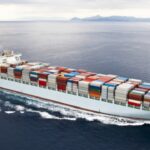

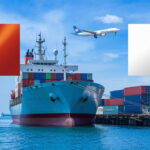


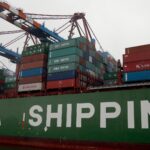



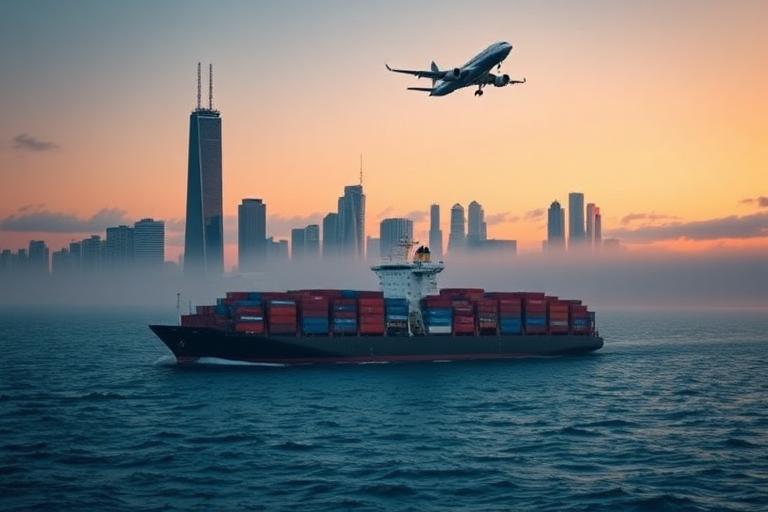
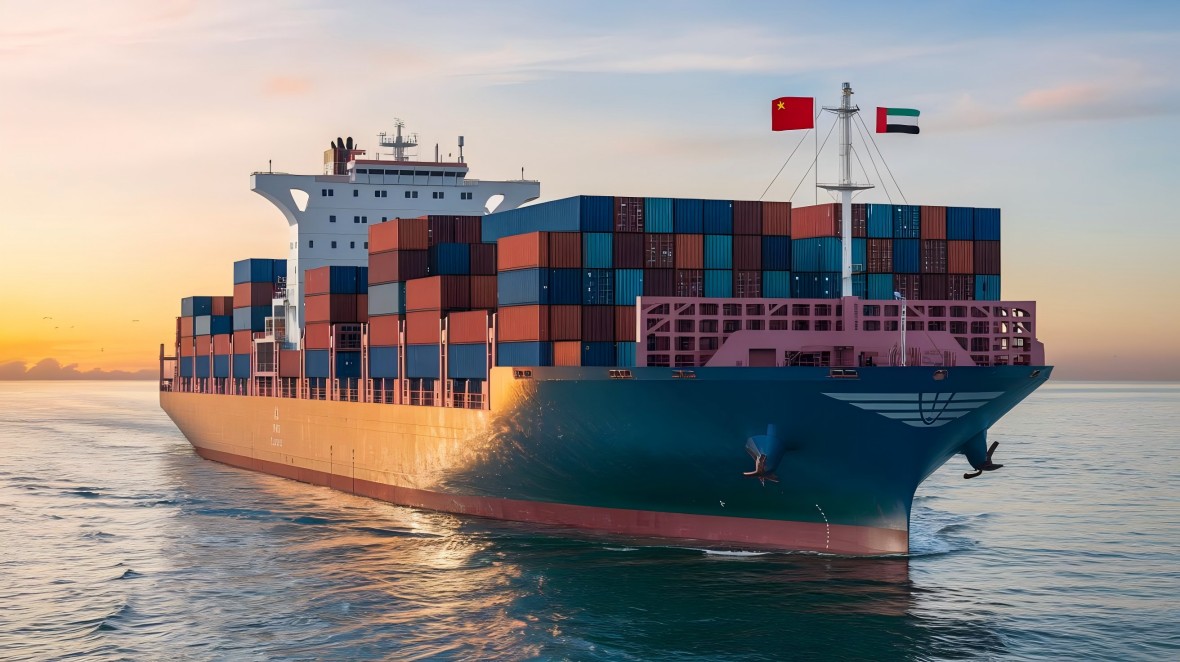
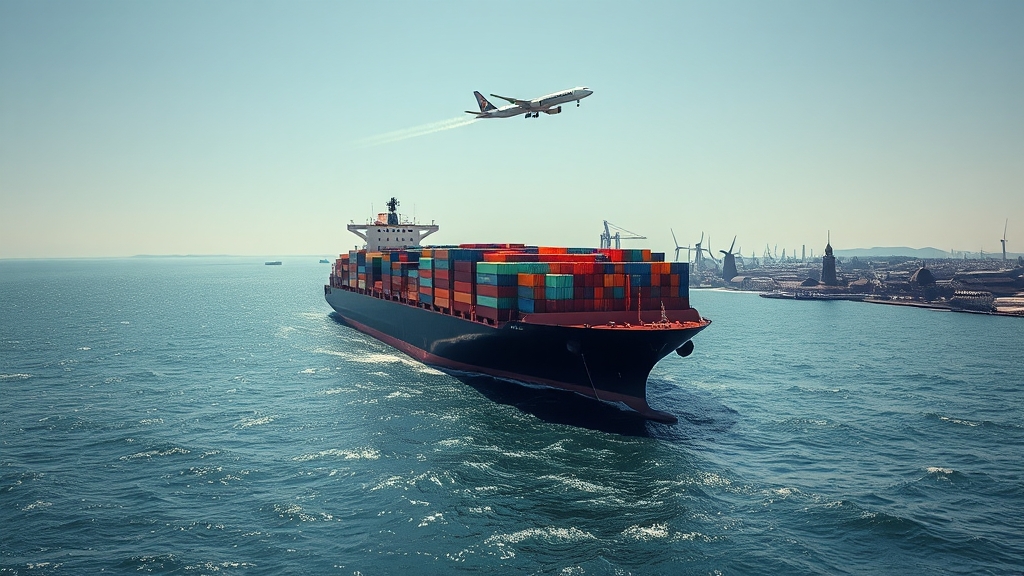
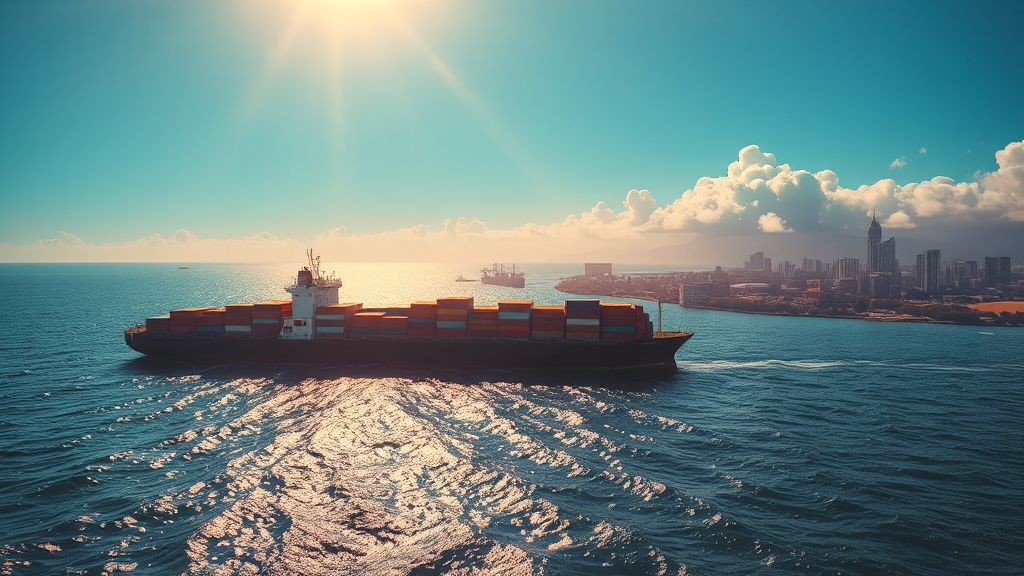
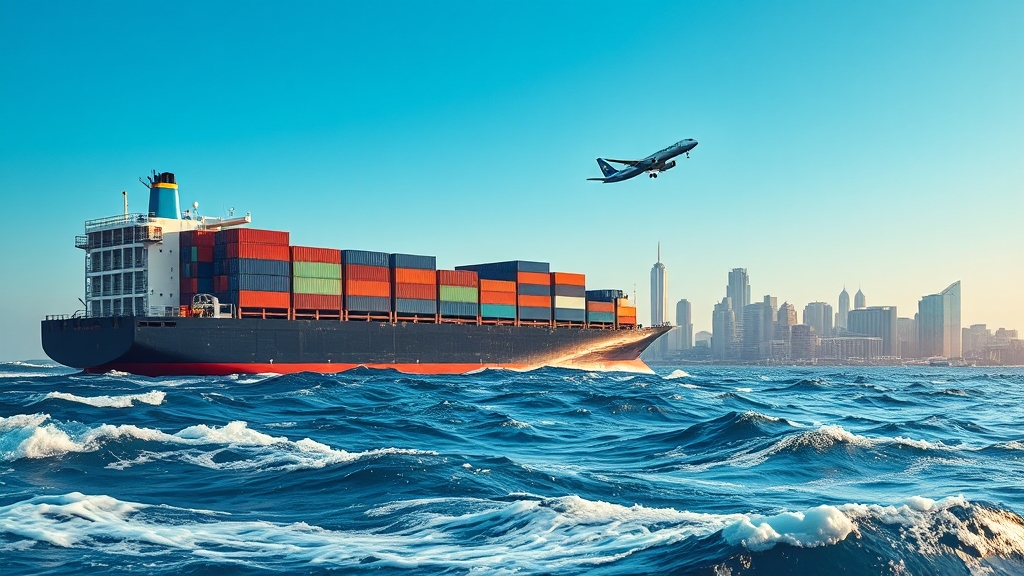





 Afrikaans
Afrikaans Shqip
Shqip አማርኛ
አማርኛ العربية
العربية Հայերեն
Հայերեն Azərbaycan dili
Azərbaycan dili Euskara
Euskara Беларуская мова
Беларуская мова বাংলা
বাংলা Bosanski
Bosanski Български
Български Català
Català Cebuano
Cebuano Chichewa
Chichewa 简体中文
简体中文 繁體中文
繁體中文 Corsu
Corsu Hrvatski
Hrvatski Čeština
Čeština Dansk
Dansk Nederlands
Nederlands English
English Esperanto
Esperanto Eesti
Eesti Filipino
Filipino Suomi
Suomi Français
Français Galego
Galego ქართული
ქართული Deutsch
Deutsch Ελληνικά
Ελληνικά Kreyol ayisyen
Kreyol ayisyen Harshen Hausa
Harshen Hausa Ōlelo Hawaiʻi
Ōlelo Hawaiʻi עִבְרִית
עִבְרִית हिन्दी
हिन्दी Hmong
Hmong Magyar
Magyar Íslenska
Íslenska Igbo
Igbo Bahasa Indonesia
Bahasa Indonesia Gaeilge
Gaeilge Italiano
Italiano 日本語
日本語 Basa Jawa
Basa Jawa ಕನ್ನಡ
ಕನ್ನಡ Қазақ тілі
Қазақ тілі ភាសាខ្មែរ
ភាសាខ្មែរ 한국어
한국어 كوردی
كوردی Кыргызча
Кыргызча ພາສາລາວ
ພາສາລາວ Latin
Latin Latviešu valoda
Latviešu valoda Lietuvių kalba
Lietuvių kalba Lëtzebuergesch
Lëtzebuergesch Македонски јазик
Македонски јазик Malagasy
Malagasy Bahasa Melayu
Bahasa Melayu മലയാളം
മലയാളം Maltese
Maltese Te Reo Māori
Te Reo Māori मराठी
मराठी Монгол
Монгол ဗမာစာ
ဗမာစာ नेपाली
नेपाली Norsk bokmål
Norsk bokmål پښتو
پښتو فارسی
فارسی Polski
Polski Português
Português ਪੰਜਾਬੀ
ਪੰਜਾਬੀ Română
Română Русский
Русский Samoan
Samoan Gàidhlig
Gàidhlig Српски језик
Српски језик Sesotho
Sesotho Shona
Shona سنڌي
سنڌي සිංහල
සිංහල Slovenčina
Slovenčina Slovenščina
Slovenščina Afsoomaali
Afsoomaali Español
Español Basa Sunda
Basa Sunda Kiswahili
Kiswahili Svenska
Svenska Тоҷикӣ
Тоҷикӣ தமிழ்
தமிழ் తెలుగు
తెలుగు ไทย
ไทย Türkçe
Türkçe Українська
Українська اردو
اردو O‘zbekcha
O‘zbekcha Tiếng Việt
Tiếng Việt Cymraeg
Cymraeg יידיש
יידיש Yorùbá
Yorùbá Zulu
Zulu